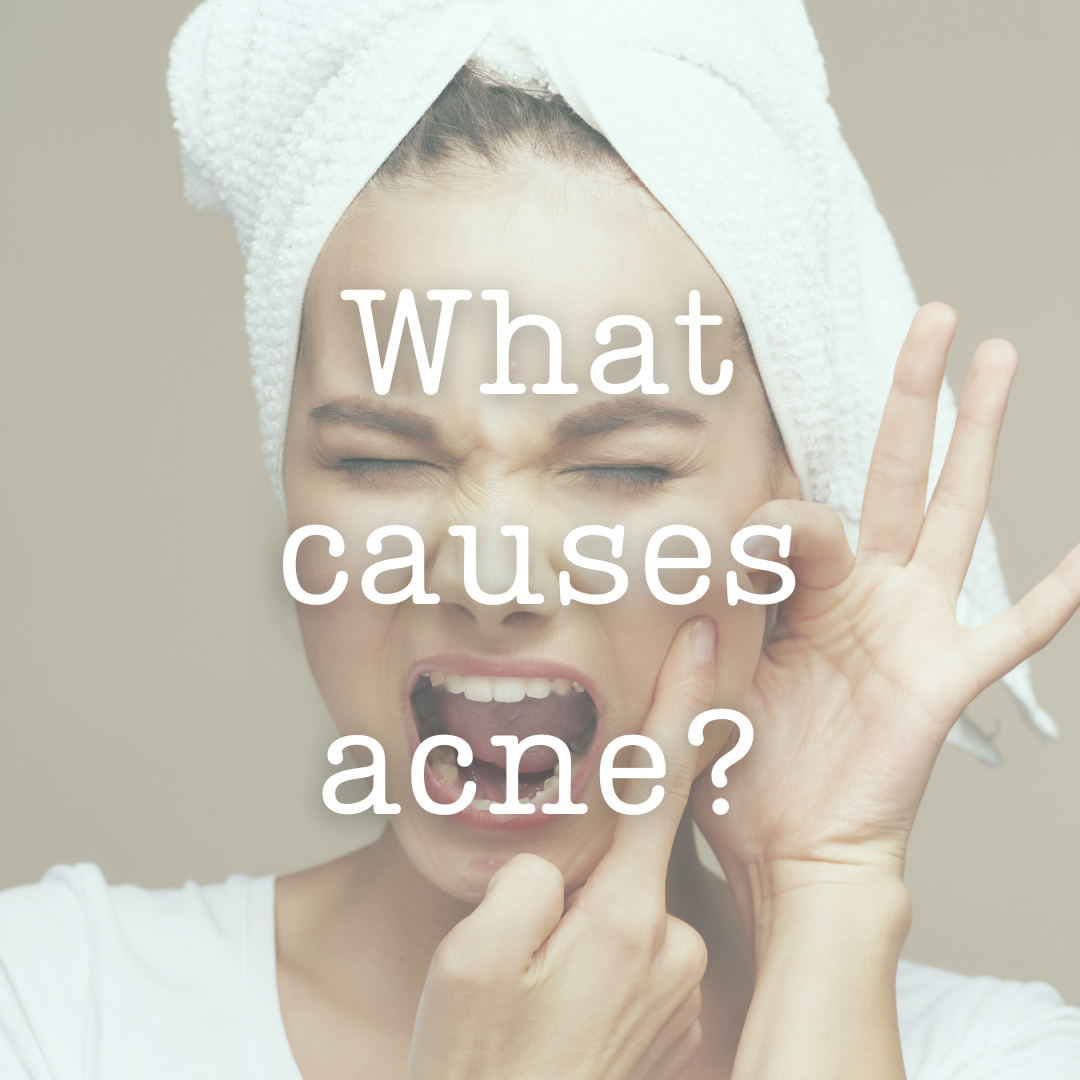
What Causes Acne?
What Causes Acne?
Acne is a common yet complex skin condition that can affect anyone at any stage of life. While it’s most prevalent during adolescence, acne can persist or even begin in adulthood. Understanding what causes acne and how to manage it effectively is key to achieving clear and healthy skin. In this blog post, we’ll delve into the nature of acne, the primary causes behind it, and the best strategies to combat it, including effective skincare routines, treatments, and lifestyle adjustments.
What is Acne?
Acne is a skin condition that arises when hair follicles become clogged with oil (sebum), dead skin cells, and bacteria. This leads to the formation of pimples, blackheads, whiteheads, and in more severe cases, cysts. Acne typically appears on the face, chest, back, and shoulders, areas where sebaceous glands are most active.
While acne is often associated with puberty due to hormonal changes, it can affect individuals of all ages. The severity can range from occasional breakouts to chronic conditions that require medical treatment.
Causes of Acne
-
Hormonal Changes Hormonal fluctuations are a primary cause of acne, particularly during puberty, pregnancy, or menstruation. Hormones called androgens increase during these times, causing the sebaceous glands to enlarge and produce more oil. This excess oil can clog pores, leading to acne.
-
Poor Diet While the connection between diet and acne is still being studied, there is evidence that certain foods may exacerbate acne. High-glycemic foods, such as sugary snacks, white bread, and soda, can cause insulin spikes that lead to increased sebum production and inflammation. Dairy products have also been linked to acne in some studies, possibly due to the hormones present in milk.
-
Poor Skincare Habits Inadequate skincare practices, such as not removing makeup before bed or using products that clog pores, can contribute to acne. When the skin isn’t properly cleansed, dirt, oil, and makeup can accumulate, leading to clogged pores and breakouts. Using harsh or unsuitable skincare products can also irritate the skin, worsening acne.
What to Do About Acne
Managing acne requires a comprehensive approach that includes a consistent skincare routine, regular treatments, and lifestyle changes. Here’s how you can tackle acne effectively:
-
Adopt a Correct Skincare Routine Consistency is key when it comes to skincare. Using correct actives like salicylic acid & glycolic acid, and correct percentages of those ingredients are important Here are some product lines that are highly effective for managing acne:
-
IMAGE Skincare Clear Cell Range: This range is specifically formulated to combat acne, featuring products like salicylic acid cleansers and masks that help to clear pores, reduce inflammation, and prevent future breakouts.
-
IMAGE Skincare Biome Range: The Biome range focuses on maintaining the balance of the skin's microbiome, which is essential for reducing inflammation and promoting overall skin health.
-
AlumierMD Products: AlumierMD offers a variety of products designed to treat and prevent acne, such as their clarifying cleanser and mattifying products that control oil production without stripping the skin of moisture.
-
-
Protect and Nourish Your Skin Barrier A healthy skin barrier is crucial for maintaining clear skin. Acne treatments can sometimes dry out or irritate the skin, making it essential to protect and nourish this barrier:
-
Use Gentle Cleansers: Opt for non-stripping, gentle cleansers that remove dirt and oil without compromising the skin’s natural moisture.
-
Moisturize Regularly: Use non-comedogenic moisturizers that hydrate the skin while preventing clogged pores.
-
Sun Protection: Always apply sunscreen to protect your skin from UV damage, which can exacerbate acne and cause post-inflammatory hyperpigmentation.
-
-
Incorporate Regular Skincare Treatments Regular professional skincare treatments can significantly improve acne-prone skin:
-
Chemical Skin Peels: Chemical peels help exfoliate the skin, removing dead skin cells that can clog pores and lead to breakouts. Treatments like those offered at at SeaBreeze can help rejuvenate the skin, reduce acne scars, and prevent future breakouts.
-
Dermalux LED Phototherapy: LED light therapy, such as the Dermalux Flex, uses specific wavelengths of light to target acne-causing bacteria, reduce inflammation, and promote healing. This non-invasive treatment is highly effective in managing acne and improving overall skin health.
-
-
Maintain a Healthy Diet and Consider Supplements A balanced diet can play a crucial role in managing acne. Incorporate foods that are rich in antioxidants, vitamins, and minerals, such as fruits, vegetables, whole grains, and lean proteins. Omega-3 fatty acids, found in fish and flaxseeds, have anti-inflammatory properties that can help reduce acne.
-
Avoid High-Glycemic Foods: Limit your intake of sugary and processed foods that can trigger insulin spikes and worsen acne.
-
Consider Supplements: Certain supplements, like zinc, vitamin D, and probiotics, can support skin health and reduce the severity of acne. Products like the FABU Glow skin supplement and Hush&Hush Clear are fantastic to nourish the skin and body, in particular when suffering with acne!
-
Acne is influenced by a combination of factors, including hormonal changes, diet, and skincare habits. While it can be challenging to manage, a targeted approach that includes the right skincare products, regular treatments, and healthy lifestyle choices can lead to clearer, healthier skin.
A whole range of skincare products, treatments and supplements are available in SeaBreeze where you can book a Skin Consultation with one of our advanced skincare therapists, who can guide you through your journey to clear skin!